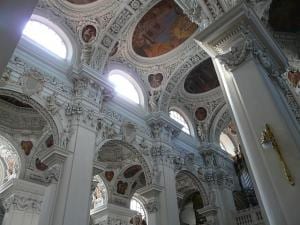Can you perform authenticity? Can you edit your own experience without falsifying it? I think that the answer is, yes, you can. It’s not easy: the slide from personality to mere persona is a smooth one. And once a persona is built, it is extremely hard to break free of it. It can feel like letting down your fans, or your friends, or your church. Growing would break through the persona shell, and it seems easier to cramp and deny growth so the shell stays in place. But it is possible to return, again and again, to the truth. That’s the great thing about the truth: it’ll still be there no matter what you do.
Now, being private about some stuff isn’t always inauthentic. But when you’re presenting yourself as cleaner or more confident or more expert than you really are, you are bearing false witness against yourself—asking to be judged by a standard you don’t meet. And, like atoms, dishonesty has the power of interacting at astronomical distances. Nothing goes unaffected by it.

Admitting your flaws can hurt. It would also be dishonest to pretend that confessing your own imperfections carries no risk to others with it; people who admire you might be upset to discover that you’re not as good as they thought, especially if you’re a figurehead of some kind. However much we rail against the bishops’ shocking betrayal of their flocks—and we should; I’d happily egg the diocesan offices here in Baltimore—it also takes less effort than we may like to admit, to understand not only their motives for so much lying, but how those motives could have presented themselves in terms of kindness rather than self-interest. Charles Williams articulated the illusion perfectly in his novel Descent Into Hell, in a scene in which a man meets a succubus made in the image of the young woman he is obsessed with but cannot pursue:
“You don’t think about yourself enough,” she said; the words were tender and grateful to him, and he knew they were true. He had never thought enough about himself. He had wanted to be kind. He had wanted to be kind to Adela; it was Adela’s obstinate folly which now outraged him. He had wanted to give himself to Adela out of kindness.
This does not make those lies any less the present operation of hell. It only means that we must confront hell within ourselves as well as without.
Image via Pixabay












